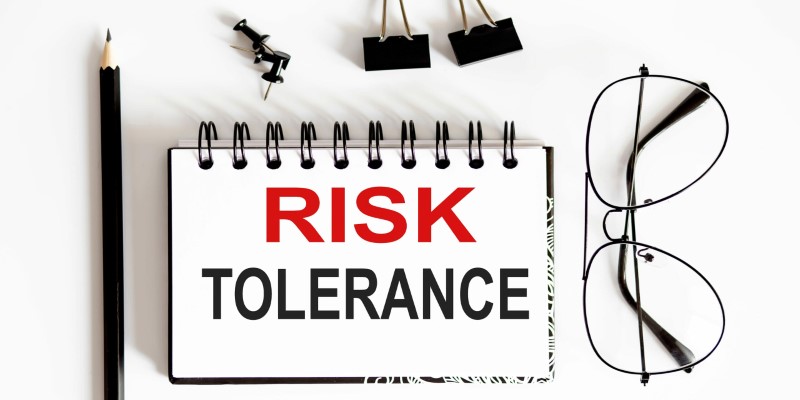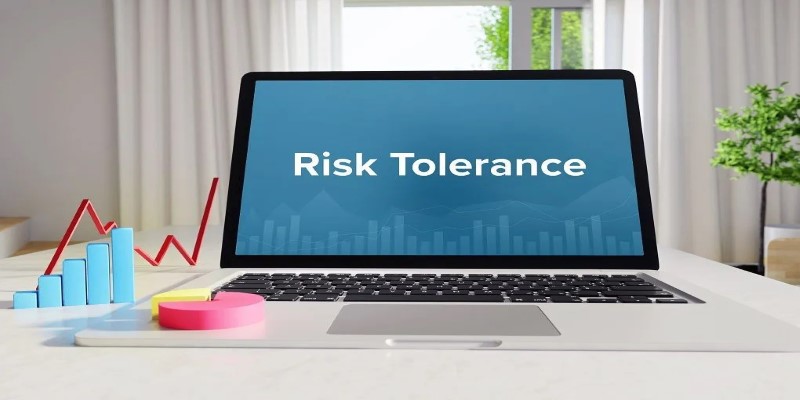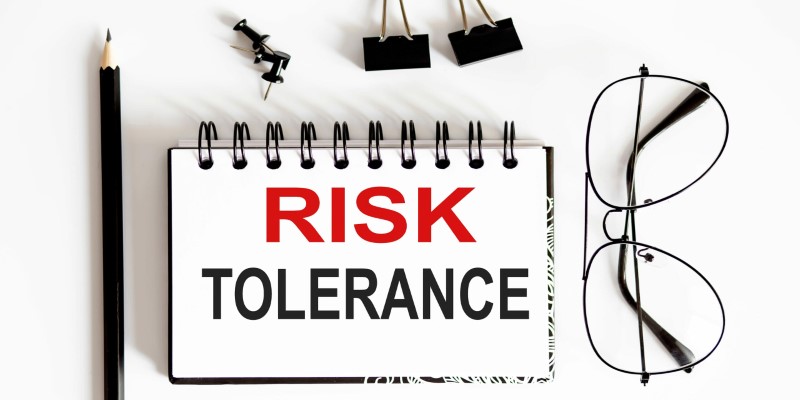Advertisement
There is no one-size-fits-all approach when it comes to managing your finances. Different priorities, goals, and risk levels all come into play when making decisions about your money. One of the main concepts in personal finance is understanding your risk tolerance. But what does that really mean, and why is it so important? Simply put, risk tolerance is the level of risk you're comfortable taking in order to achieve your financial goals. It shapes how you approach investments, savings, and even day-to-day financial choices. In this article, we'll explore what risk tolerance is, how to determine your own, and why it's critical for your long-term financial health.

Risk tolerance is the level of risk you are ready to accept when making a decision. It is an intrinsic characteristic that differs between persons. Some people are naturally risk-averse and prefer investments that have low risks, while others might be willing to incur more risks in the hopes that returns will be better. Risk tolerance affects nearly everything you do in terms of financial planning, whether you are choosing the types of investments to manage unexpected expenses.
Your risk tolerance depends on many factors, such as your age, financial goals, personal experiences, and even your psychological comfort level with uncertainty. A young person with a long career ahead might be willing to take risks in the stock market, while a person close to retirement would prefer safer, more stable options like bonds. The art lies in finding the balance between risk and reward to correspond to your life stage, financial aspirations, and personal comfort zone.
Understanding your risk tolerance starts with self-reflection. What is your reaction to uncertainty? Do you feel anxious when things aren't guaranteed, or do you enjoy the thrill of the unknown? This isnt just about your willingness to take on risk in financial markets; it also touches on how you approach lifes uncertainties in general.
To assess your risk tolerance, start by asking yourself a few questions. How comfortable are you with the possibility of losing money in exchange for the chance to make more? How much of a financial loss could you handle without it affecting your lifestyle or emotional well-being? There are also risk tolerance quizzes available online that can help you assess your comfort level in different financial scenarios.
Once you have an understanding of your risk tolerance, it's essential to match it with your financial goals. If you're saving for a short-term goal, like buying a house in the next few years, you might not want to take on as much risk. However, if you're investing for a long-term goal, like retirement 20-30 years down the line, you may have the ability to weather short-term volatility and embrace higher-risk investments.

Understanding your risk tolerance is critical for making sound financial decisions. Without this understanding, you may end up choosing investment options or financial strategies that cause unnecessary stress or, worse, lead to losses that could have been avoided. Risk tolerance helps you create a financial plan that aligns with your comfort zone while also working toward your financial goals. Here are a few reasons why it's so important:
By matching your investments and financial strategies to your risk tolerance, you reduce the chances of experiencing significant stress during market downturns or when unexpected financial events occur. When your choices are in line with your comfort level, you're less likely to panic or make rash decisions that could negatively affect your financial future.
Risk tolerance plays a central role in determining which types of investments are appropriate for you. If you're more risk-averse, you might lean toward safer, more predictable options like bonds or savings accounts. On the other hand, if you have a higher tolerance for risk, you might look into equities or real estate investments, which can offer higher returns but come with more volatility.

Over time, your financial goals may evolve, and so will your risk tolerance. Understanding where you stand now allows you to adjust your approach as needed. For example, a younger person with a higher risk tolerance might choose more aggressive investment options early in their career, but as they near retirement age, they might shift toward lower-risk investments to protect their accumulated wealth.
When you understand your risk tolerance, you make better decisions overall. Whether its choosing investments, budgeting for future expenses, or planning for lifes uncertainties, a clear understanding of what you're comfortable with helps you make smarter, more informed choices.
One of the unique aspects of risk tolerance is that its not staticit can change over time as your life circumstances, financial goals, and comfort with uncertainty evolve. This is why its essential to periodically reassess your risk tolerance. For instance, when youre younger and more focused on growth, you may be comfortable taking more risks. But as you age or reach a major life milestone like buying a house or starting a family, you may decide to take a more cautious approach.
Similarly, significant life events such as a job change, a financial windfall, or a major setback might also impact your willingness to take on financial risk. These changes should prompt you to reevaluate your financial plan and make adjustments to better align with your current situation.
For example, if youve recently paid off a large portion of debt, you may find that you're in a better financial position to invest more aggressively. On the flip side, if youve experienced a major financial setback, like losing a job or facing a large medical expense, you may feel more risk-averse and want to focus on building your emergency fund or paying down debt.
Risk tolerance is an essential element of sound financial planning. Its the framework within which all your financial decisions should be made, ensuring that you pursue your goals in a way that aligns with both your objectives and your comfort level. Whether youre an investor looking to build wealth over time or someone trying to navigate everyday financial decisions, understanding your risk tolerance will keep you grounded and help you make smarter, less stressful choices.
Advertisement

By Georgia Vincent/Mar 17, 2025

By Sid Leonard/Mar 17, 2025

By Nancy Miller/Jan 01, 2024

By Juliana Daniel/Jan 14, 2025

By Noa Ensign/Nov 08, 2024

By Sean William/Jan 14, 2025

By Celia Shatzman/Mar 18, 2025

By Nancy Miller/Jan 08, 2025

By Isabella Moss/Jan 10, 2025

By Darnell Malan/Dec 21, 2024

By Gabrielle Bennett /Jan 14, 2025

By Christin Shatzman/Mar 16, 2025